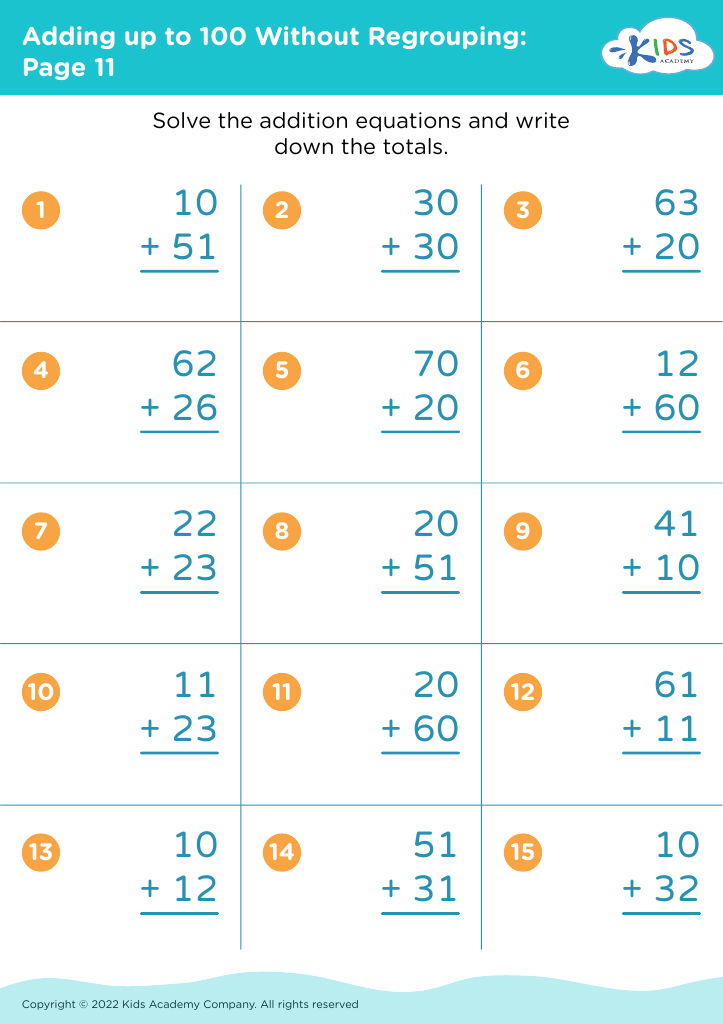Improving reading skills Addition & Subtraction Worksheets for Ages 7-8
4 filtered results
-
From - To
Boost your child's math and reading competencies with our "Improving Reading Skills Addition & Subtraction Worksheets" designed for ages 7-8. These expertly crafted worksheets merge fundamental math exercises with engaging reading practice, providing a dual approach to learning. Your child will solve addition and subtraction problems while reading passages that enhance comprehension, concentrating on both mathematical precision and literacy improvement. Perfect for advancing school performance, our worksheets are tailored to support and challenge young learners. Embrace this dynamic resource to foster a love for numbers and words, paving the way for continued academic success.
At ages 7-8, children are developing foundational skills that set the stage for future learning, making it crucial for parents and teachers to focus on improving reading, addition, and subtraction skills. Improving reading proficiency at this stage helps children understand and process information, boosts their vocabulary, and enhances comprehension, setting them up for success across all subjects. A solid grasp of reading enables children to follow instructions, engage in critical thinking, and cultivate a love for learning.
Similarly, mastery in addition and subtraction forms the cornerstone of future mathematical understanding. These basic math skills enhance problem-solving abilities, which are essential not only in academics but also in everyday life. From managing time to handling money, math skills are practical tools that foster independence and confidence in children.
By prioritizing reading and math competency during this sensitive period of brain development, adults help children build a strong, versatile foundation. This integrated approach not only prepares them for more complex academic challenges but also fosters a sense of accomplishment and boosts self-esteem. Overall, emphasizing these fundamental skills early promises long-term educational benefits and equips children with essential life skills.





















